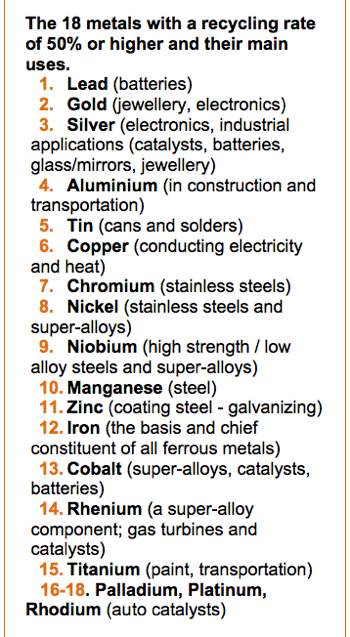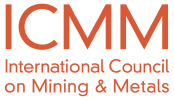ICMM Welcomes New UNEP Report on Metals Recycling That Calls for Life Cycle Approach
Published 05-26-11
Submitted by International Council on Mining and Metals (ICMM)

Smarter product designs and better waste management schemes could help boost metals recycling around the world, according to a new UNEP report presented this morning at the London Metal Exchange and this afternoon in Brussels as part of the Green Week Conference 2011.
ICMM's John Atherton, who was part of the report's peer review group, welcomed its findings. "We hope this report encourages policy makers and product designers to adopt life cycle thinking when planning for materials recycling," he said.
Recycling Rates of Metals: A Status Report marks the first attempt to gather accurate and consistent information about the extent to which metals are collected, processed and reused. It found that recycling rates remain discouragingly low despite significant country and regional efforts to promote the reuse of metals.
"In theory, metals can be used over and over again," said Achim Steiner, UN Under-Secretary General and UNEP's Executive Director. "Raising levels of recycling worldwide can therefore contribute to a transition to a low carbon, resource efficient Green Economy while assisting to generate 'green jobs.'"
However, less than one third of some 60 metals studied had an end-of-life recycling rate above 50%, while over half the elements had a recycling rate below 1% despite often being crucial to clean air technologies.
Lead was the best performer, with close to 80% of products - mainly batteries - being recycled. Similarly, more than half of iron and steel components are recycled, largely because they are easy to remove and process.
Platinum, gold, silver and most other precious metals are also recycled, because of their high value. But there is virtually no recycling of the remaining metals, including lithium - required for batteries in electric vehicles. Collection systems were identified as the weakest link in the recycling chain.
"Increasingly, designers are combining metals into sophisticated alloys, or joining them in complex ways, to create products that perform better or cut costs," said Dr Thomas Graedel, a professor of industrial ecology at Yale University and one of the report’s eight authors. "Unfortunately, while they're improving products, they're paying too little attention to the ease and cost of recovering the components. This report hopes to aid designers and producers incorporate recycling rates into their work."
Also present at the launch were Chris Evans, Head of Business Development, London Metal Exchange (LME) and Nick Nuttal, UNEP Spokesman.
To download UNEP's full report visit their website.
About ICMM
The International Council on Mining and Metals (ICMM) was established in 2001 to act as a catalyst for performance improvement in the mining and metals industry. Today, the organization brings together 20 mining and metals companies as well as 30 national and regional mining associations and global commodity associations to address the core sustainable development challenges faced by the industry.
ICMM serves as a change agent - not in areas affecting competitive positioning, but related to our members' social and environmental responsibilities where collaboration makes sense. Our vision is one of leading companies working together and with others to strengthen the contribution of mining, minerals and metals to sustainable development. www.icmm.com

International Council on Mining and Metals (ICMM)
International Council on Mining and Metals (ICMM)
ICMM is a CEO-led industry group that addresses key priorities and emerging issues within the sector. It seeks to play a leading role by promoting good practice and improved performance internationally and across different commodities.
ICMM provides a platform for industry and other key stakeholders to share challenges and develop solutions based on sound science and the principles of sustainable development. Its vision is for a respected mining and metals industry that is widely recognized as essential for society and as a key contributor to sustainable development.
ICMM's mission is two-fold - to distinguish its members as industry leaders and to make a contribution to raising standards across the industry as a whole.
To be an ICMM member, a company must build trust and respect with key stakeholders as a result of good performance in sustainable development, including clear and comprehensive approaches to reporting and assurance.

